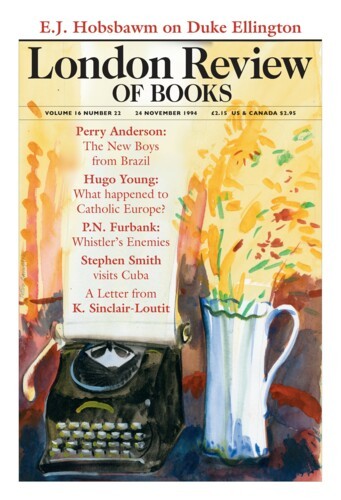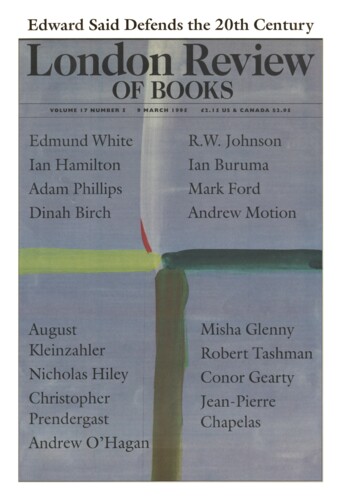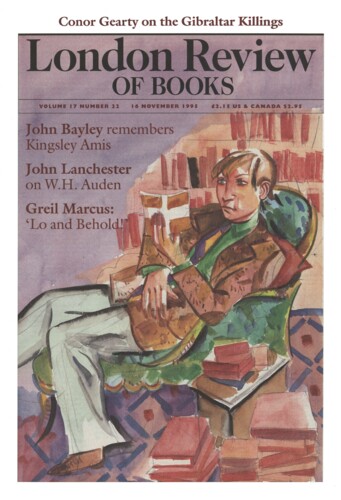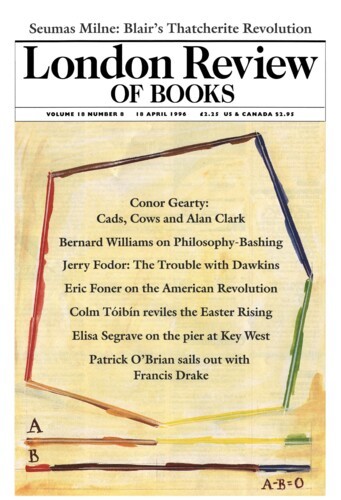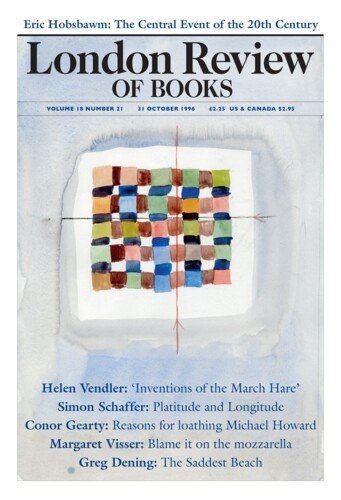Diary: Various Forms of Sleaze
Conor Gearty, 24 November 1994
In September 1992, David Mellor resigned from the government after concern over an extra-marital affair and a free holiday in Europe. An affair also accounted for Mr Tim Yeo in early 1994. Soon after this resignation, Lord Caithness resigned following the suicide of his wife, which apparently was the result of an affair he had been conducting. In 1993, Michael Mates left the government after disclosures that he had sent gifts and messages of support to the businessman Asil Nadir. Norman Lamont caused an uproar over his use of public money to evict a tenant from his property. Other lesser Tories, such as Mrs Thatcher’s successor in Finchley, Hartley Booth, have left office under a moral cloud. Neil Hamilton and Tim Smith are part of a long Tory tradition. If we throw our minds back to the Thatcher age, various forms of sleaze are associated with the names of Cecil Parkinson, Nicholas Fairbairn and Patrick Nicholls. Leaving aside the proper ‘constitutional’ resignations of Lord Carrington, Leon Brittan and Michael Heseltine, and the not so proper ministerial non-resignations that cannot be mentioned for fear of the libel laws, we can still see that the rotten-apple theory of ministerial misdemeanours breaks down, since the whole barrel is infected by sleaze.
